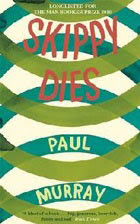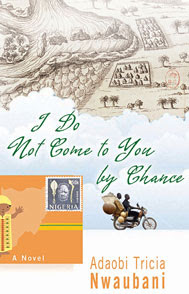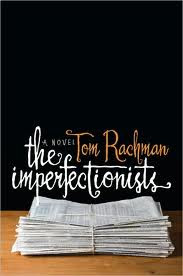
SAY YOU’RE ONE OF THEM is a collection of short stories which relate the struggles of young people from various parts of Africa. As recorded previously in the this blog, I generally not so fond of short stories, but I found this collection really engaging.
The first story, An Ex-Mas Feast, tells the story of a streetkid whose twelve year old sister is prostituting herself so he can go to school. This sounds like a terribly sad story, and indeed in many ways it is; but the writing is somehow also often both lyrical and comic. Here’s an example, of the streetkid looking for his sister, when he finds she has bought him a new uniform:
I felt like running out to search for her in the streets. I wanted to hug her and laugh until the moon dissolved. I wanted to buy her Coke and chapati, for sometimes she forgot to eat.
The author clearly has much experience of the lives of the very poor, for he recreates the difficult lives of those in Nairobi’s slums with great detail. We learn, for example, that the family member most in need of warmth has one of their limbs put through a hole in the family’s single blanket, to ensure that they stay in the middle.
The next story, Fattening for Gabon, is in my opinion the best in the collection, being both full of suspense, and really complex in its characters. It follows the story of two small children taken in by their uncle. The children receive great food and new clothes, and it becomes increasingly clear that their uncle is preparing them to be shipped off with human traffickers, and battling with second thoughts as he does so.
Further stories take place in religious conflict in Nigeria, and during the genocide Rwanda. As I got closer to the end of the book, I had my fingers crossed for at least one story about middle class children in Cairo, or Dakar, or Joburg; but no such luck I’m afraid. This I found to be rather sad: apparently the millions of children in Africa not victims of starvation or violence don’t have any stories to tell. Or perhaps in the minds of publishers if you’re not starving you can’t really be African?
In any case, these were well written stories, if on a rather narrow theme, and Nigerian Uwem Akpan is a talented author. I was rather surprised to learn that he is also a Catholic priest, and was quite touched to find out that many of his first stories were typed up on the seminary’s community computers, and then immediately lost to computer viruses. Oh Africa!
(This focus on poverty as a subject in African fiction I noted some time ago, here, in the context of the Caine Prize – much more on this subject can be found here with Nana at ImageNations, who has collected much useful debate on the subject)









